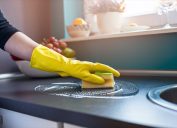The One Thing in Your Kitchen You're Not Cleaning Enough
Not cleaning this item can lead to bacteria buildup and damage.
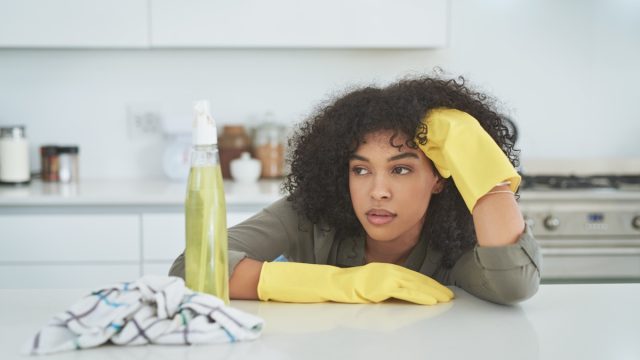
With all the cleaning you've been doing these past seven months, we don't blame you for missing a spot or two every now and then. But it turns out, cutting corners when you're cleaning may be doing more damage than you think, especially in your kitchen. In fact, there are some items you don't even realize you should be cleaning in the first place. According to cleaning experts, the one thing in your kitchen you probably don't clean enough is your microwave. Read on to find out about the damage you're doing, and for another surprising cesspool, check out The Filthiest Spot in Your Home Is 12 Times Dirtier Than a Toilet Seat.
"Your microwave is likely to be used every day, meaning it is also more prone to dirt and damage," says Robert Johnson, a home expert and founder of Sawinery.
So, how often does Johnson say to give it a good scrub? "It is wise to dedicate a day each week to clean it," he says.
If left unattended, unpleasant smells in your microwave may be the least of your worries.
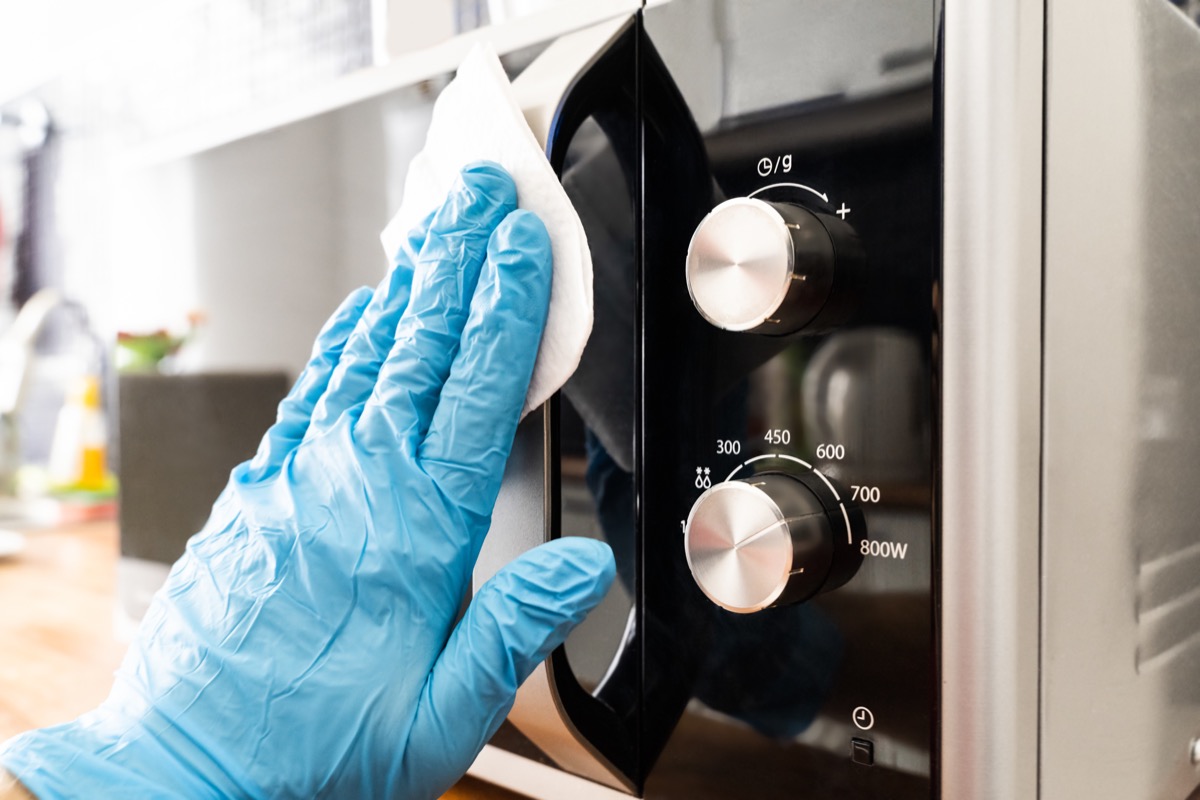
Mark McAuley, a cleaning expert with Ballarat Cleaning Specialists, says there are three main reasons you need to clean your microwave often: steam, splattered food, and cross contamination.
"By heating up food, microwaves draw out steam. This steam will form condensation and sit on the inner surfaces of the microwave. Water alone left sitting at room temperature will encourage the growth of mold and bacteria," he says.
And splattered food can "lay the groundwork for a starter culture far beyond that of residual steam," McAuley adds. Bacteria like E. coli, which is a common source of food poisoning, can grow from these food particles.
Over time, the steam combined with the old food left behind can start to permeate new meals being heated. "As the splattered food reheats again and again, it will give off its own steam, which will then be mixed in with the atmosphere of the turning microwave," McAuley says. "This creates an environment of cross contamination since, as that steam settles—some produced by old food, some produced by the new—it will not discriminate."
According to Abe Navas, general manager of Emily's Maids, a house cleaning service in Texas, this also leads to the breakdown of microwaves, which can become quite costly.
"Microwaves often get replaced because people don't know how to clean them and why they are not working as they used to," Navas explains. He says that much of the power in your microwave gets drawn out to heat up the gunk in your microwave instead of the food you're trying to heat.
"Over time, this gunk accumulates and draws more and more power," Navas says. "Then you think your microwave is broken and you crank up the power—and this becomes a never-ending cycle and finally, your machine overheats and dies."
Fortunately, your microwave is pretty easy to clean. Johnson and Navas recommend steaming a water mixture inside your microwave with either soap, lemon, or vinegar. After letting it cool down, you can use this mixture with a sponge or cloth to wipe down the inside.
Johnson also reminds homeowners to clean the outside of their microwave with this method, but make sure you unplug it first.
Of course, your microwave isn't the only thing you're forgetting to clean in your house. For more items you need to clean more often, read on. And for the personal spot where you're going overboard with cleaning, discover The One Body Part Doctors Say You Should Never Clean.
1
Pillows

Despite laying our heads on our pillows every night, we tend to only wash our pillowcases and never the actual item inside. Ty Rosa, cleaning expert behind The Sparkling Clean Instagram page, says pillows should be "washed every couple of months at a minimum or should be replaced every six months or so." After all, she explains that pillows collect a lot of "dust, danger, and oils" from our heads. But your pillows aren't the only thing collecting dirt on your bed. Read up on How Often You Should Really Be Changing Your Sheets.
2
Curtains
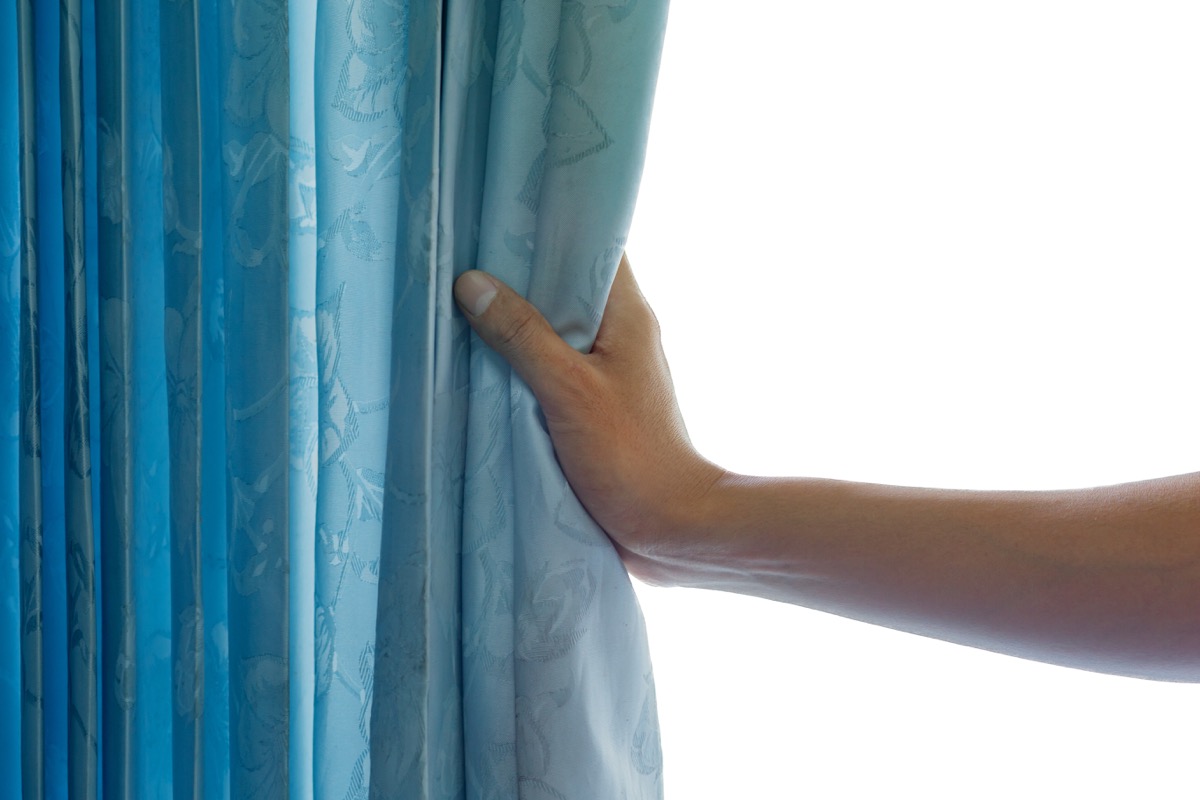
Curtains often go unnoticed, making them "easily neglected," says Leanne Stapf, the chief operating officer at The Cleaning Authority. But they can accumulate dust and odors from around your house, she explains. "Give the curtains a little extra TLC once every season, but look at their material before throwing them in the washing machine," Stapf warns. "Some may need to be sent to the dry cleaners."
3
Ceiling fans
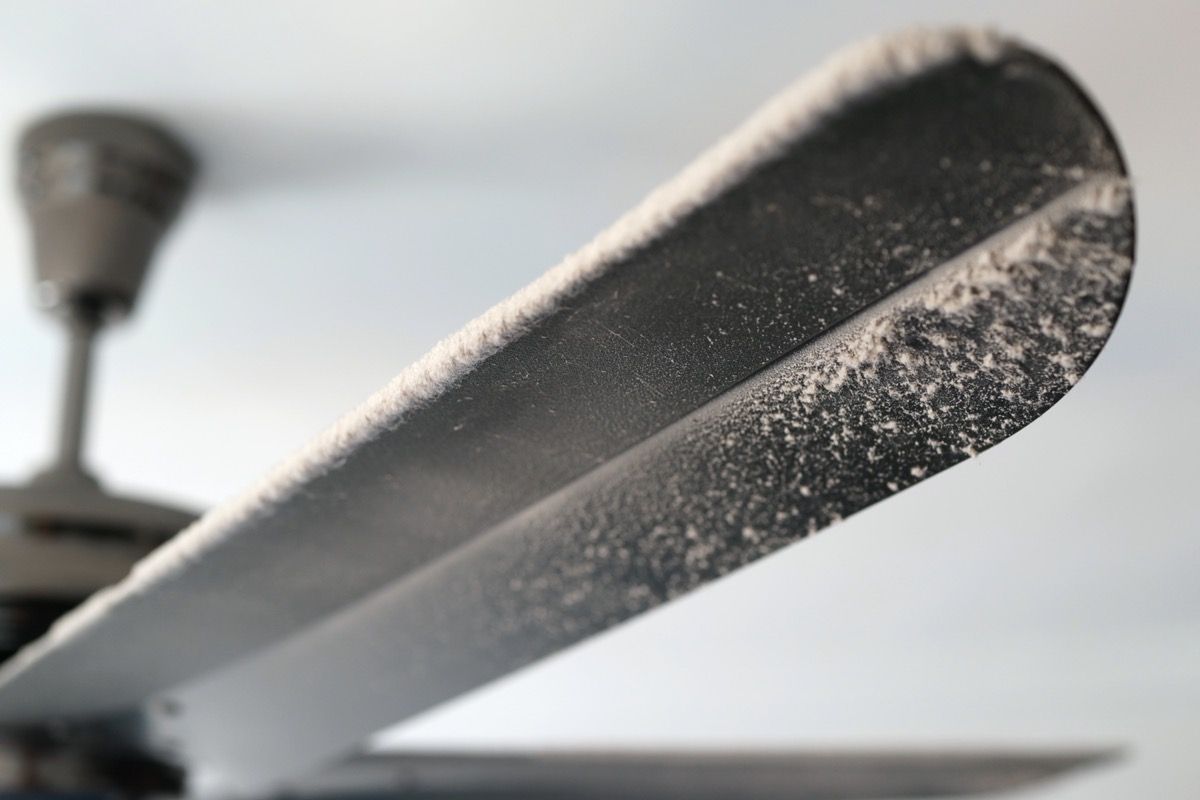
"Ceiling fans quickly collect dust and dirt particles. And when we turn them on, the accumulated dust and dirt gets re-distributed around the house," says Jotham Hatch, vice president of training with international carpet and upholstery cleaning service company Chem-Dry. He recommends that homeowners "develop a weekly habit of wiping off ceiling blades." And for the fans causing more dire dangers, know that If You Have This Fan in Your House, You Should Stop Using It Immediately.
4
Drains
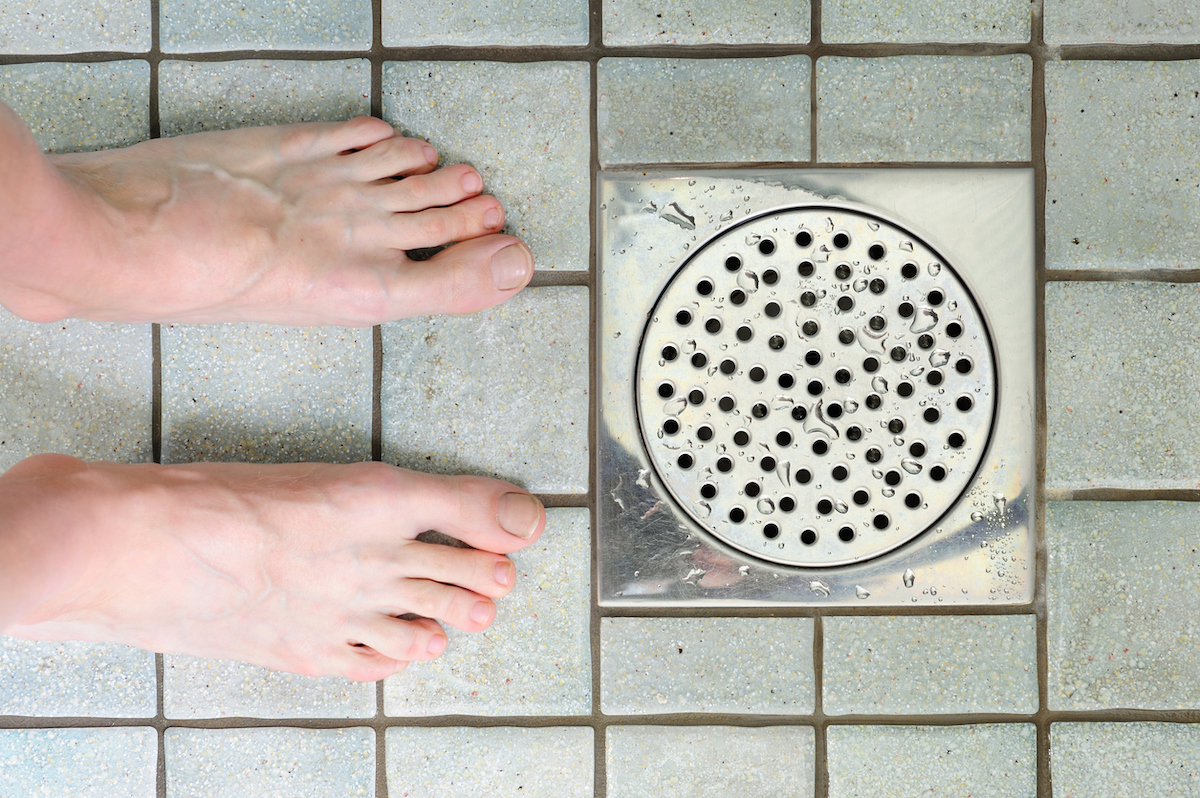
Jake Romano with John the Plumber, a Canadian plumbing service provider, says "an enormous chunk of plumbing service calls are drain-related." This is because most people don't take proper care of their drains. If left untreated for some time, drains can develop serious blockages that can't be fixed by household drain cleaners.
"Using products like Drano to unblock a clog once it's developed can damage your plumbing system, but worse, it doesn't adequately remove the blockage. Instead, it creates a hole through the blockage," he explains. "A good and simple habit to avoid this is to, every quarter of the year, flush the drain with baking soda and vinegar, followed by hot water. It's an inexpensive way to remove debris and sanitize your plumbing system." And for more up-to-date tips and tricks, sign up for our daily newsletter.




